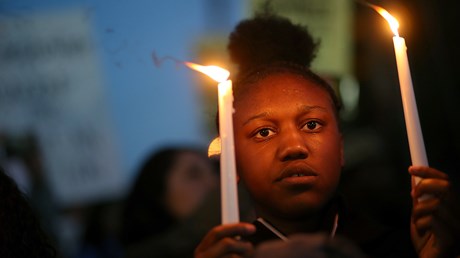Tuesday, 31 July 2018
Psalm 119:114
from
https://www.biblegateway.com/passage/?version=NIV&search=Psalm%20119:114
Prosperity Gospel Taught to 4 in 10 Evangelical Churchgoers
Survey finds most Protestants believe God wants them to prosper financially. But views diverge on whether they must tithe to receive it.

For some Americans, dropping a check into the offering plate at church is a bit like having a Discover Card.
Both offer a cash-back bonus.
About a third of Protestant churchgoers say their congregation teaches that God will bless them if they donate money.
Two-thirds say God wants them to prosper. One in 4 say they have to do something for God to receive material blessings in return.
Those are among the key findings of a new study on “prosperity gospel” beliefs from Nashville-based LifeWay Research, which surveyed 1,010 Americans who attend a Protestant or nondenominational church at least once a month.
Researchers found more than a few churchgoers believe giving to God leads to financial rewards, said Scott McConnell, executive director of LifeWay Research.
“A significant group of churches seem to teach that donations trigger a financial response from God,” said McConnell.
A controversial topic
The belief that God gives financial rewards in exchange for offerings is a central part of the so-called prosperity gospel, which offers a “direct path to the good life,” as Duke professor Kate Bowler puts it.
That belief is both controversial and fairly commonplace.
LifeWay Research found 38 percent of Protestant churchgoers agree with the statement, “My church teaches that if I give more money to my church and charities, God will bless me in return.” Fifty-seven percent disagree, including 40 percent who strongly disagree. Five percent are not sure.
Pentecostal and Assemblies of God churchgoers (53%) are most likely to agree. Churchgoers with evangelical beliefs (41%) are more likely to agree than those without evangelical beliefs (35%).
African-American (51%) and Hispanic churchgoers (43%) are ...
from
http://feeds.christianitytoday.com/~r/christianitytoday/ctmag/~3/Hcv17EQ-hYY/prosperity-gospel-survey-churchgoers-prosper-tithe-blessing.html
Under the Law: Israeli Christians Worry About Secondary Status in Jewish Nation-State
Palestinian Christians and Messianic Jews cautious as region’s only democracy makes its identity politics official.

In a legislative act both obvious and inflammatory, this month Israel cemented its nature as a Jewish state.
What this means for its Palestinian Christians and Messianic Jews is left unclear.
By a narrow vote in the Knesset, Israel’s legislature, the law entitled “Basic Law: Israel as the Nation-State of the Jewish People” was adopted to serve alongside over a dozen other “basic laws” that serve as Israel’s de facto constitution.
A key clause states that national self-determination is “unique” to Jews. Other provisions formally establish the nation’s flag, emblem, and anthem. Jerusalem is confirmed as the complete and united capital. The Sabbath and Jewish festivals are declared official days of rest.
But two other clauses have raised considerable concern. Jewish settlement is a “national value” to be promoted. And Arabic is downgraded from an official language to one with “special status.”
“This law outlines that Israel’s democratic values are secondary for non-Jews,” said Shadia Qubti, a Palestinian evangelical living in Nazareth. “It sends a clear message that my language is not welcome and consequently, neither is my cultural and ethnic identity.”
Her fears are echoed by an Israeli lawyer.
“While the idea of the law is straightforward—it’s hard to argue that Israel isn’t a Jewish state—the actual provisions are controversial, discriminatory, and possibly racist,” said Jaime Cowen, former president of the Union of Messianic Jewish Congregations.
Israel lacks a constitution, so its Declaration of Independence has long served as a reference point for law. It promises “full and equal ...
from
http://feeds.christianitytoday.com/~r/christianitytoday/ctmag/~3/CfaVHhlta7I/israel-jewish-nation-state-basic-law-christians-messianics.html
The Church and Mental Health: What Do the Numbers Tell Us?
Let's move beyond the whispering, the silence, the shame, and the stigma.

Most of us know someone who is in counseling, on medication, or has even taken his or her own life as a result of a mental illness. There are many difficult issues for Christians to talk about, and mental health would certainly be near the top of that list. Y
et, this is a conversation the Church needs to have. Suicide may be one of the most complex and demanding topics of all. Over the past few years, the discussion has felt forced, especially when the event is connected to high-profile suicides of prominent Christian leaders or their family members and close associates.
While the circumstances in these situations are varied, the question of mental health always comes up; and when we talk about mental illness and suicide, it immediately creates a unique challenge for believers. The question is “Why?” Why is it uniquely challenging for us to address issues often associated with mental illness?
God Heals
The answer is, at least partly, because we know God heals. He not only restores our spiritual wounds, but many also believe God physically heals… at times in miraculous ways.
So, as people of faith, we accept the miraculous, know of freedom in Christ, experience the forgiveness of sin, and acknowledge supernatural healing. However, we have all seen people, even believers, struggle with severe mental problems. They affect them emotionally, spiritually and relationally, and sometimes deliverance does not seem to come in supernatural ways. The person wants help. His or her family seeks answers.
Others wonder what is going on. So, it makes for awkward and limited conversations. As leaders, we often end up avoiding mental illness concerns altogether, or we fly by the seat of our spiritual pants in response when help ...
from
http://feeds.christianitytoday.com/~r/christianitytoday/ctmag/~3/KMAg06k1bQ8/church-and-mental-health-what-do-numbers-tell-us.html
Suicide, Religion and Atheism
from
http://www.patheos.com/blogs/tippling/2018/07/31/suicide-religion-and-atheism/
John 1:12-13
from
https://www.biblegateway.com/passage/?version=NIV&search=John%201:12-13
Monday, 30 July 2018
You Can’t Have Racial Justice Without a Bloody Cross
Jonathan Wilson-Hartgrove’s necessary rebuke on race rests on a sadly truncated gospel.

In 1846, the abolitionist Samuel Brooke published a book called Slavery, and the Slaveholder’s Religion; as Opposed to Christianity, in which he condemned human bondage as “the violation of every principle of human brotherhood, of natural right, of justice, of humanity, of Christianity, of love to God and to man.”
Like so many of his fellow abolitionists, Brooke wanted to prick the conscience of a religious tradition that sang songs of praise to God on Sunday and whipped slaves on Monday. In Reconstructing the Gospel: Finding Freedom from Slaveholder Religion, writer and activist Jonathan Wilson-Hartgrove attempts to take up this mantle, arguing that today’s white evangelical movement remains beholden to a racial ideology that hijacks and distorts the true Christian faith.
Wilson-Hartgrove doesn’t approach the topic of race as an expert, though his experience moving into a majority-black neighborhood in Durham, North Carolina, gives him a proximity not shared by many of his fellow white Christians. Yet he offers a remonstrance that many white Christian leaders desperately need to hear. He traces fault lines in American Christianity that have roots in the nation’s founding and shows how white evangelicals have often baptized white supremacy either by endorsement or silence.
We are tempted, of course, to assume that we are well beyond our racial tensions, being more than 150 years removed from the Civil War and more than 50 years removed from the passage of landmark civil rights legislation. But significant tensions remain, and systemic racism, more subtle and pernicious than white bed sheets or lynching trees, still causes suffering for African Americans. Wilson-Hartgrove makes a persuasive ...
from
http://feeds.christianitytoday.com/~r/christianitytoday/ctmag/~3/9LT3Teq0Rkw/jonathan-wilson-hartgrove-reconstructing-gospel.html
A Bright Future Rooted in a Distant Past
As we look forward, our present activity must be rooted in God’s kingdom work throughout redemptive history.

The glum cacophony of voices bemoaning the state of the church in North America present a bleak deconstructionist’s portrait of the future. It does not look good. With the diagnosis comes heaps of questions clamoring for immediate answers:
- How does the rise of the “nones” and “dones” influence our missiology?
- How does the pervasive nature of racism and associations within evangelicalism influence our posture toward the marginalized, particularly in urban centers?
- How has the lingering implications of our unwavering embrace of church growth paradigms neutered the mission of the church?
These are important and necessary questions that are, unfortunately, often met with more hand wringing than thoughtful solutions. When authentic attempts are made at devising answers for the future, they often presuppose our current sociological and ecclesiological realities as the starting point for envisioning the future.
Perhaps this is the wrong place to start.
Maybe we need to look a little further into the past. Maybe a lot further.
This isn’t the first time the church has faced a hostile culture, lost its voice in a secularized world, or cowered in the face of political foes from every side. Many of us have never been here before, but God’s people certainly have seen worse days.
Before we propose any future strategy, we must first root our activity in the history of God’s kingdom work throughout redemptive history. After all, history is his story.
Which forces us to ask the big question: “What does God want?” Not, what does God want to do with the challenges facing the church in North America? We will get there in time.
But, what has God always wanted for his people?
There are those in ...
from
http://feeds.christianitytoday.com/~r/christianitytoday/ctmag/~3/BixtrwIeoQY/bright-future-rooted-in-distant-past.html
from
http://www.patheos.com/blogs/tippling/2018/07/30/17776/
Sunday, 29 July 2018
Matthew 5:14,16
from
https://www.biblegateway.com/passage/?version=NIV&search=Matthew%205:14,16
Have We Got Life Seriously Wrong?
from
http://www.patheos.com/blogs/tippling/2018/07/29/have-we-got-life-seriously-wrong/
An Amazingly Detailed Political Map
from
http://www.patheos.com/blogs/tippling/2018/07/29/an-amazingly-detailed-political-map/
An Amazingly Detailed Political Map
from
http://www.patheos.com/blogs/tippling/2018/07/29/an-amazingly-detailed-political-map/
Saturday, 28 July 2018
Psalm 119:93
from
https://www.biblegateway.com/passage/?version=NIV&search=Psalm%20119:93
Missionary Identity
The reality is, Christians are interlopers. We are strangers and foreigners.

As Christians, I believe we should always be more driven by our missionary identity than we are by our national identity, our political identity, our environmental identity, our social identity, or even our church identity.
Don’t get me wrong. We ought to love our church. (I know I love my church.) And the Church (with capital C) is the bride of Christ, destined for eternity with God. But here on earth, we must face the reality that our culture is not to be our primary identity.
Our culture is a mission field. We must see ourselves as people on mission. This is not our home. This is our mission field. Therefore, we all must see our vocations as mission—as kingdom work.
Strangers in a Foreign Land
First Peter 2:11 tells us that we are strangers and exiles. This land is not our home. But part of the challenge is that a lot of people want to fight for their homeland instead of acknowledging that we’re supposed to have the mindset of foreigners and exiles.
Let’s put this into the facts that we know about our population. If the percentage of people who are nominally Christian is shrinking and nominal Christians become Nones, then we are dwelling in an increasingly secular land.
As a result, we need a re-emphasis on gospel clarity. Being labeled Christian no longer means a ‘social Christian,’ but instead is someone who’s been changed by the power of the gospel, if indeed you have. This is a vital theological shift in the way we are viewed and should view our land.
Understanding these shifts is necessary in part because we live in an age of outrage. People in our land get ticked off over things that they don’t like. This calls us to gospel clarity. And missionary identity, seeing ourselves ...
from
http://feeds.christianitytoday.com/~r/christianitytoday/ctmag/~3/XWEE5oZIZe0/missionary-identity.html
Friday, 27 July 2018
Philippians 3:14
from
https://www.biblegateway.com/passage/?version=NIV&search=Philippians%203:14
Intelligent Designer Babies? Christians Tell Pew What They Approve and Oppose
Most believers favor CRISPR gene editing for health conditions before birth, but not after it.

Scientists are finding it easier and easier to alter a baby’s genes, thanks to the groundbreaking CRISPR method. But Americans are divided on which uses of the new technology are appropriate or not. And for the religious, the ethical lines are even more stringent, according to the Pew Research Center.
In a new report released this week, Pew found almost 3 in 4 Americans support the use of gene editing to help cure a serious congenital disease (one present at birth), while only 57 percent of the highly religious agree. (Pew identifies highly religious Americans as those who attend services at least weekly, pray daily, and say that religion is very important in their lives.)
In the future, medical professionals may also be able to use gene editing to reduce the risk of a health condition that would crop up later in life. Only 60 percent of Americans felt that would be appropriate, while support among the highly religious dropped below 50 percent.
Among the three choices Pew listed in its survey, respondents felt the most inappropriate use of gene editing would be enhancing a baby’s intelligence. About 8 in 10 Americans think that would be taking medical technology too far, as do 94 percent of the highly religious.
Overall, white evangelicals and black Protestants (two-thirds of whom identify as evangelicals according to Pew) feel the same about the applications of gene editing, though they invert on using it reduce disease later in life. [The breakdown for all religious groups is in the charts below.]
Before gene editing can be used for clinical use, it must undergo more development and trials. This will likely involve scientists testing the technology using human embryos—a subject that has been especially objectionable ...
from
http://feeds.christianitytoday.com/~r/christianitytoday/ctmag/~3/mSM_sSyfTOY/gene-editing-crispr-christian-views-designer-babies-pew.html